News
-
 Planetary Science
Planetary ScienceGranite likely lurks beneath the moon’s surface
Without plate tectonics or water, granite is hard to make. But a 50-kilometer-wide hunk sits beneath the moon’s surface, lunar orbiter data suggest.
-
 Health & Medicine
Health & Medicine‘Milking’ umbilical cords may help some sickly newborns
Taking a few seconds to push umbilical cord blood into a baby’s belly could provide extra essential nutrients. But questions about the practice remain.
-
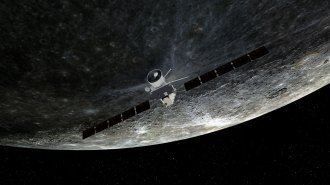 Planetary Science
Planetary ScienceA rain of electrons causes Mercury’s X-ray auroras
The first direct measurement of electrons raining down on Mercury suggests this particle precipitation causes most auroras in the solar system.
By Elise Cutts -
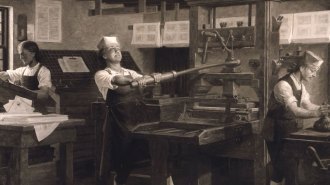 Chemistry
ChemistryHow Benjamin Franklin fought money counterfeiters
Researchers are confirming some of the techniques that Benjamin Franklin and his associates used to help early American paper currency succeed.
-
 Health & Medicine
Health & MedicineNew Alzheimer’s drugs are coming. Here’s what you need to know
Several new drugs that target brain plaques slow mental decline in people with Alzheimer’s disease. But they are not for everyone, researchers caution.
-
 Health & Medicine
Health & MedicineA new device can detect the coronavirus in the air in minutes
The detector can sense as a few as seven to 35 coronavirus particles per liter of air — about as sensitive as a PCR test but much quicker.
-
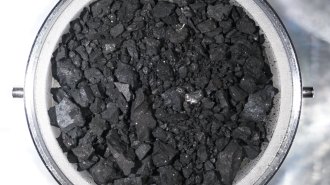 Astronomy
AstronomyRyugu asteroid samples are sprinkled with stardust older than the solar system
Slivers of the asteroid appear to be from the fringes of the solar system and could reveal bits of the history of the sun and its planets.
-
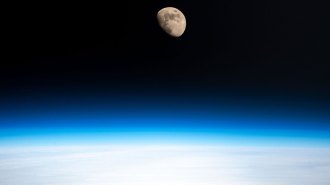 Physics
PhysicsMass has different definitions. The moon’s orbit confirms two are equivalent
Laser measurements of the moon’s orbit square with Newton’s third law of motion and Einstein’s theory of gravity.
-
 Climate
ClimateLast week was the hottest ever recorded — here’s why we keep smashing records
Global temperature records are being shattered as El Niño and climate change combine to push the Earth into uncharted territory, researchers say.
By Nikk Ogasa -
 Astronomy
AstronomyCoronal rain has been seen splashing on the sun
New images of the solar corona, taken by the Solar Orbiter probe, reveal bright fireball effects and upwelling induced by falling plasma droplets.
-
 Earth
EarthWildfires aren’t going away. Here’s how smoke can affect your health
How does repeat exposure to wildfire smoke affect our health? Three experts weigh in on the massive air pollution fueled by Canada’s ongoing fires.
By Meghan Rosen -
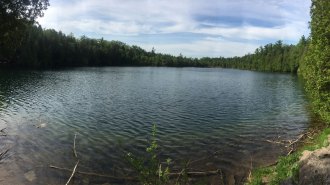 Climate
ClimateCanada’s Crawford Lake could mark the beginning of the Anthropocene
The mud of a Canadian lake holds an extremely precise record of humans’ influence on Earth. But the Anthropocene isn’t an official geologic epoch yet.